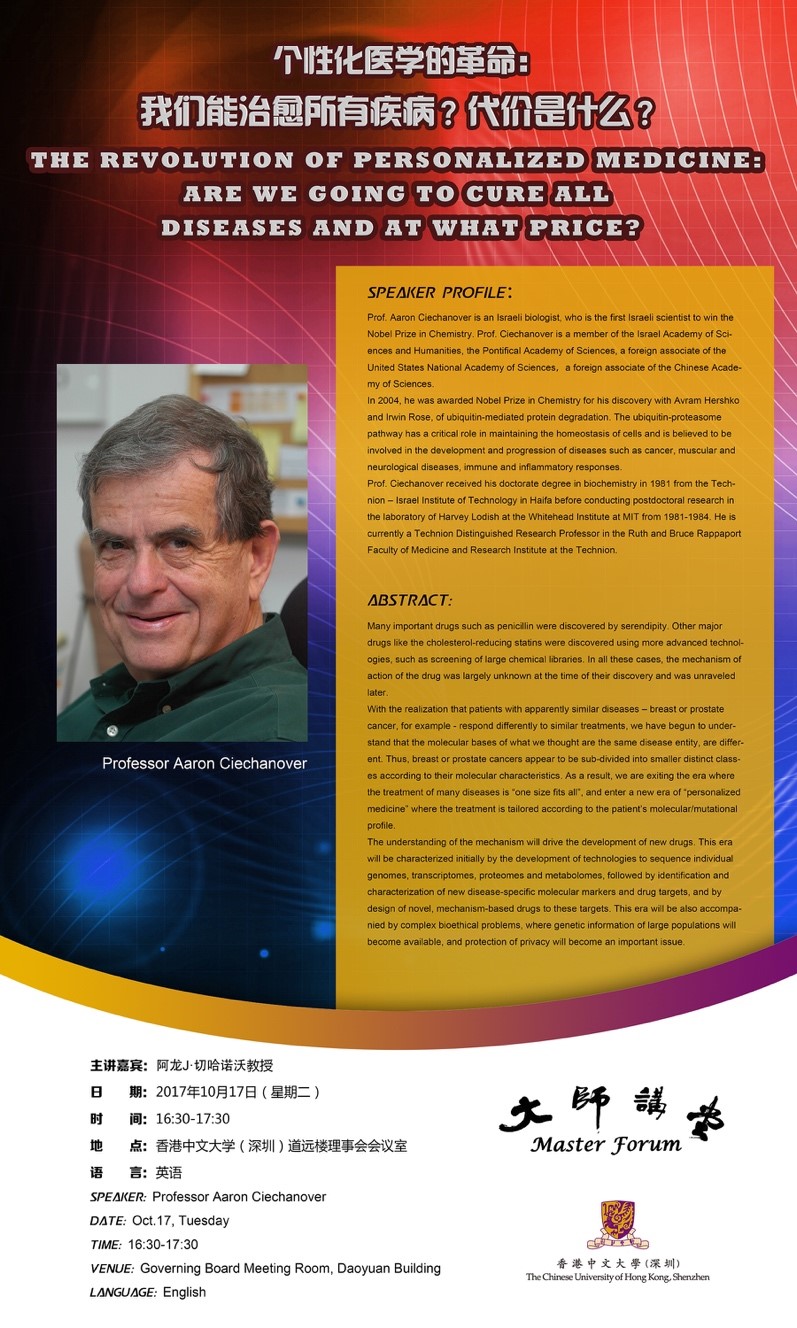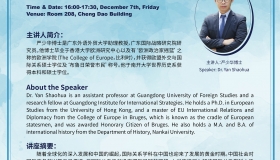The Revolution of Personalized Medicine
Speaker: Professor Aaron Ciechanover
Date: Oct.17, Tuesday
Time: 16:30-17:30
Venue: Governing Board Meeting Room, Dao Yuan Building
Language: English
Speaker Profile
Prof. Aaron Ciechanover is an Israeli biologist, who is the first Israeli scientist to win the Nobel Prize in Chemistry. Prof. Ciechanover is a member of the Israel Academy of Sciences and Humanities, the Pontifical Academy of Sciences, a foreign associate of the United States National Academy of Sciences and a foreign associate of the Chinese Academy of Sciences.
In 2004, he was awarded Nobel Prize in Chemistry for his discovery with Avram Hershko and Irwin Rose, of ubiquitin-mediated protein degradation. The ubiquitin-proteasome pathway has a critical role in maintaining the homeostasis of cells and is believed to be involved in the development and progression of diseases such as cancer, muscular and neurological diseases, immune and inflammatory responses.
Prof. Ciechanover received his doctorate degree in biochemistry in 1981 from the Technion – Israel Institute of Technology in Haifa before conducting postdoctoral research in the laboratory of Harvey Lodish at the Whitehead Institute at MIT from 1981-1984. He is currently a Technion Distinguished Research Professor in the Ruth and Bruce Rappaport Faculty of Medicine and Research Institute at the Technion.
Abstract
Many important drugs such as penicillin were discovered by serendipity. Other major drugs like the cholesterol-reducing statins were discovered using more advanced technologies, such as screening of large chemical libraries. In all these cases, the mechanism of action of the drug was largely unknown at the time of their discovery and was unraveled later.
With the realization that patients with apparently similar diseases – breast or prostate cancer, for example - respond differently to similar treatments, we have begun to understand that the molecular bases of what we thought are the same disease entity, are different. Thus, breast or prostate cancers appear to be sub-divided into smaller distinct classes according to their molecular characteristics. As a result, we are exiting the era where the treatment of many diseases is “one size fits all”, and enter a new era of “personalized medicine” where the treatment is tailored according to the patient’s molecular/mutational profile.
The understanding of the mechanism will drive the development of new drugs. This era will be characterized initially by the development of technologies to sequence individual genomes, transcriptomes, proteomes and metabolomes, followed by identification and characterization of new disease-specific molecular markers and drug targets, and by design of novel, mechanism-based drugs to these targets. This era will be also accompanied by complex bioethical problems, where genetic information of large populations will become available, and protection of privacy will become an important issue.





